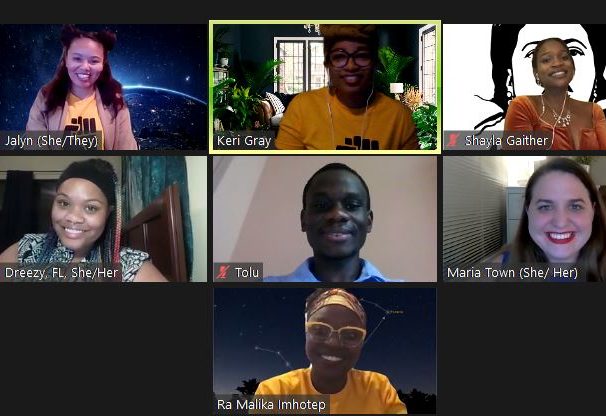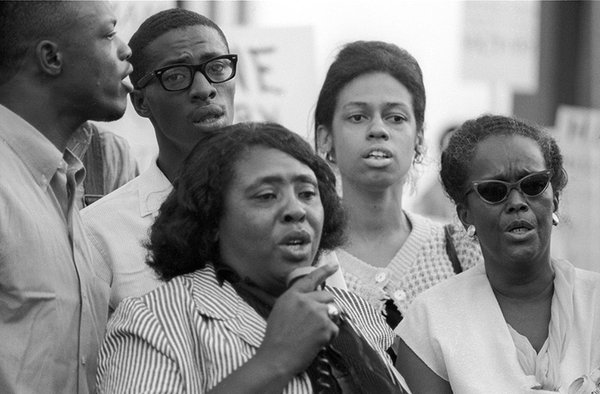Fannie Lou Hamer Leadership Program
The Fannie Lou Hamer Leadership Program is designed for young Black disabled advocates (ages 18 – 30) who are committed to the social, political, and economic issues surrounding the intersections of the Black and Disability communities.
Who is Fannie Lou Hamer?
Fannie Lou Hamer is a well-recognized civil rights activist and organizer for voting rights. Her work centered on elevating the rights of Black voters and women, particularly across the state of Mississippi. Hamer had polio as a child and later became physically disabled due to a severe beating in a Mississippi jail. In honor of her legacy and sacrifice, AAPD is proud to host the Fannie Lou Hamer Leadership Program.
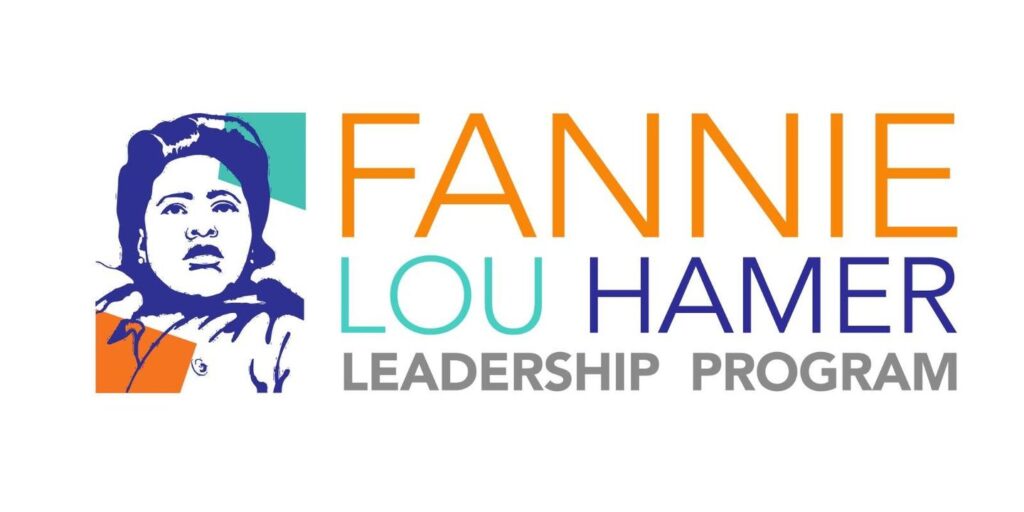
About the Program
Check back in soon for information about the next opportunity to participate in the Fannie Lou Hamer Program.
What is the Fannie Lou Hamer Leadership Program?
The Fannie Lou Hamer Leadership Program is a 10-week program that takes place in the summer. The program equips and engages young Black disabled individuals who want to grow as community organizers.
How much time does the FLH Program require?
The Fannie Lou Hamer Leadership Program includes weekly political educations and gatherings (all virtual) as well as some additional learning and activities encouraged. We estimate 3-5 hours spent per week on this program. This program includes a stipend for each participant of $1,500.
When is the FLH Program?
The 2023 program will run from October 10 – December 19. The program coordinator will work with participants to choose the times for weekly meetings and other activities.
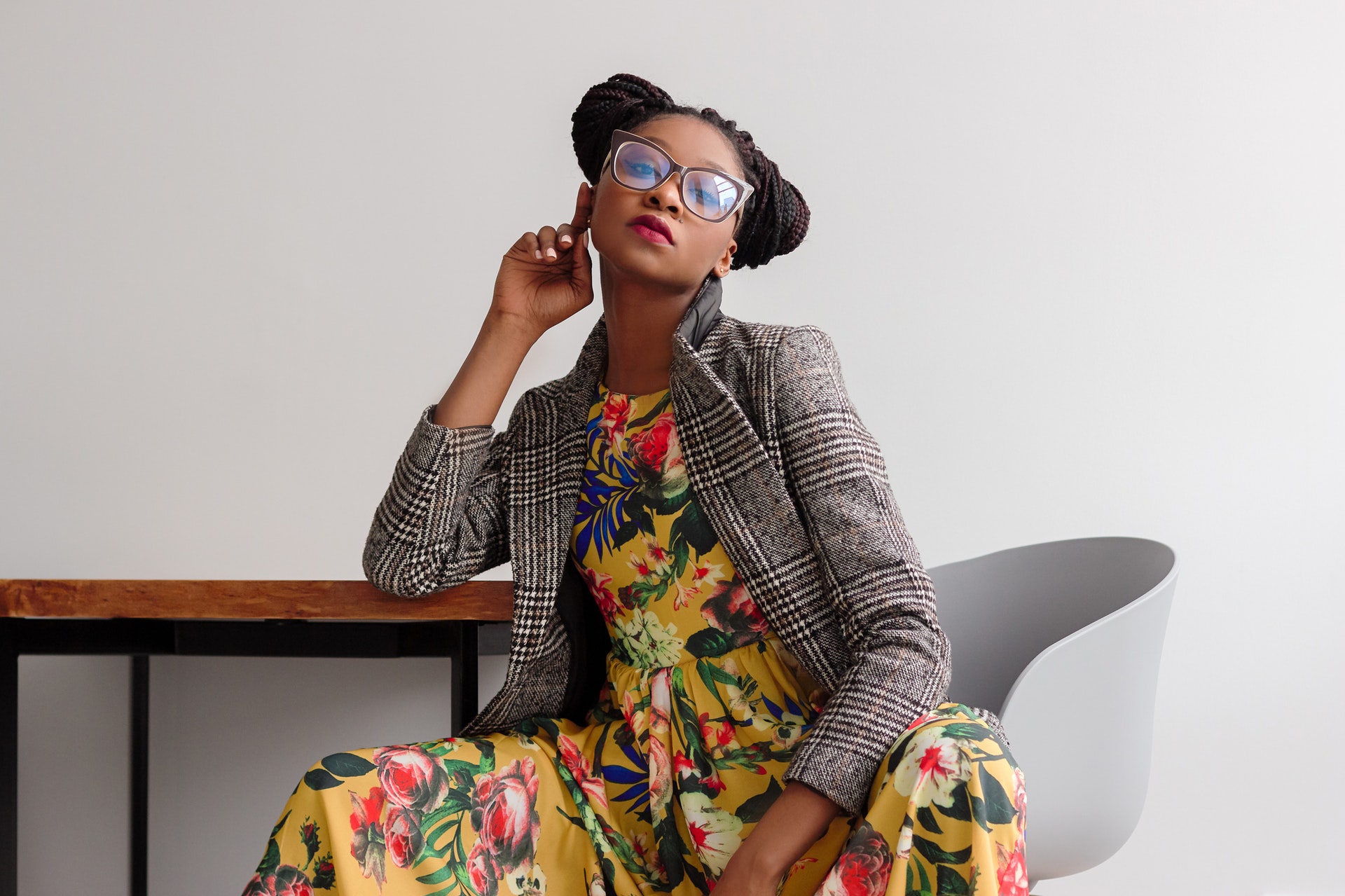
Meet the 2023 Cohort
Amie Jean
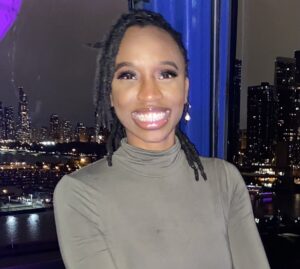 I’m Amie. The A stands for advocate , the M for motivational, the I for impactful in the E for encouraging. In all that I am involved in I strive to embody those descriptors. I’m trying to eat a Fully plant-based diet but I just love strawberry ice cream . I am a first generation college graduate, I am a wheelchair tennis player, a cyclist and more. My focus in this life is to support and empower individuals living credibly through challenging circumstances.
I’m Amie. The A stands for advocate , the M for motivational, the I for impactful in the E for encouraging. In all that I am involved in I strive to embody those descriptors. I’m trying to eat a Fully plant-based diet but I just love strawberry ice cream . I am a first generation college graduate, I am a wheelchair tennis player, a cyclist and more. My focus in this life is to support and empower individuals living credibly through challenging circumstances.
Ollie Henry
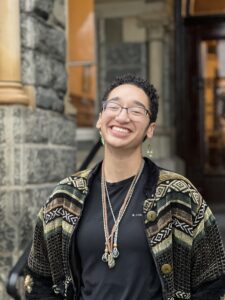 Ollie Henry (they/them) is a yoga instructor, community organizer, budding poet, and public speaker studying Government and Women and Gender Studies at Georgetown University. Their practice of holding space on the yoga mat centers healing and embodiment for folkx of the Black Diaspora and has led them to present workshops at the Healing While Black Summit and teach classes in D.C. Furthermore, Henry has done extensive community organizing work around reparations, leading Hoyas Advocating for Slavery Accountability and the GU Protects Racists campaigns at Georgetown University. They have spoken extensively in the public sphere about the intersection of queerness, blackness, and (dis)ability, from being the first non-binary person to speak at the March on Washington to their 2022 TEDX talk.
Ollie Henry (they/them) is a yoga instructor, community organizer, budding poet, and public speaker studying Government and Women and Gender Studies at Georgetown University. Their practice of holding space on the yoga mat centers healing and embodiment for folkx of the Black Diaspora and has led them to present workshops at the Healing While Black Summit and teach classes in D.C. Furthermore, Henry has done extensive community organizing work around reparations, leading Hoyas Advocating for Slavery Accountability and the GU Protects Racists campaigns at Georgetown University. They have spoken extensively in the public sphere about the intersection of queerness, blackness, and (dis)ability, from being the first non-binary person to speak at the March on Washington to their 2022 TEDX talk.
Saphire Murphy
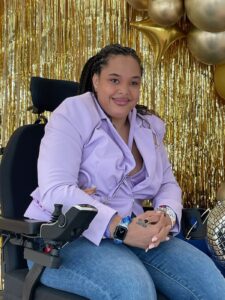 Saphire Murphy ( she/ her) is a graduate student applying for her doctorate this fall. She is currently involved in her local community ( Cleveland, Ohio ) advocacy work and hopes to continue it after her studies. Representation is a key to Saphire’s work, professionally and personally, and she wants people in her local community to understand the power in holding intersectional identities in her local community.
Saphire Murphy ( she/ her) is a graduate student applying for her doctorate this fall. She is currently involved in her local community ( Cleveland, Ohio ) advocacy work and hopes to continue it after her studies. Representation is a key to Saphire’s work, professionally and personally, and she wants people in her local community to understand the power in holding intersectional identities in her local community.
Qualik Ford
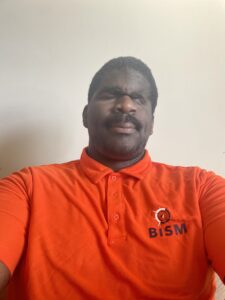 I’m Qualik Ford, a 22-year-old from Maryland. I use he him pronouns. I am blind and partially deaf, I find joy in listening to books, engaging in debates, and playing goal ball.
I’m Qualik Ford, a 22-year-old from Maryland. I use he him pronouns. I am blind and partially deaf, I find joy in listening to books, engaging in debates, and playing goal ball.
Kaysia Corbett
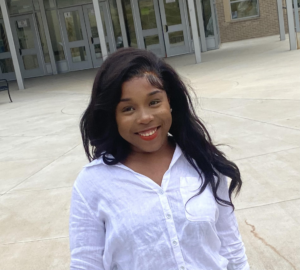 Hello, My name is Kaysia Corbett. I am originally from Hamden, CT but I moved to Baltimore to pursue my degree as a nursing student at Morgan State University. In 2019, I suffered through a near-fatal car accident which resulted in a TBI, a subdural hematoma, or bleeding on the outermost part of the skull. I have always been in admiration of my ability to alchemize knowledge in attempts to connect with and understand the world around me. After my car accident, it became a lot harder to understand and remember pretty much everything. Through this experience, I was able to gain a larger sense of compassion and empathy for those with intellectual disabilities, as well as for myself. I finally realized that perfection does not exist, only the idea of it does and to not be so hard on myself over things that were written into existence since this world was created. Through my passions for both health care and community, I aspire to help others heal through social action development and community empowerment. I pray that through this wonderful experience, I can gain the wisdom and knowledge that this life requires to help others and make a real difference in the community for those with disabilities.
Hello, My name is Kaysia Corbett. I am originally from Hamden, CT but I moved to Baltimore to pursue my degree as a nursing student at Morgan State University. In 2019, I suffered through a near-fatal car accident which resulted in a TBI, a subdural hematoma, or bleeding on the outermost part of the skull. I have always been in admiration of my ability to alchemize knowledge in attempts to connect with and understand the world around me. After my car accident, it became a lot harder to understand and remember pretty much everything. Through this experience, I was able to gain a larger sense of compassion and empathy for those with intellectual disabilities, as well as for myself. I finally realized that perfection does not exist, only the idea of it does and to not be so hard on myself over things that were written into existence since this world was created. Through my passions for both health care and community, I aspire to help others heal through social action development and community empowerment. I pray that through this wonderful experience, I can gain the wisdom and knowledge that this life requires to help others and make a real difference in the community for those with disabilities.
Learn More About the FLH Program

2022 Fannie Lou Hamer Leadership Program
